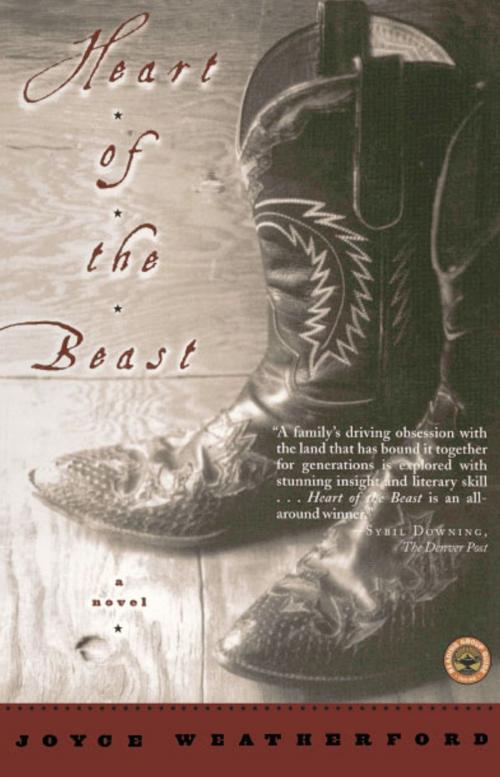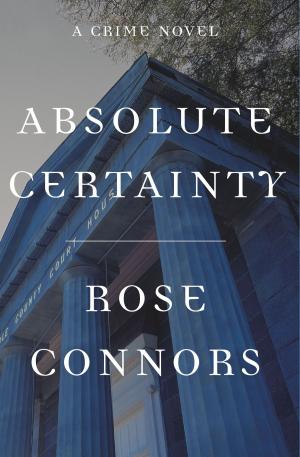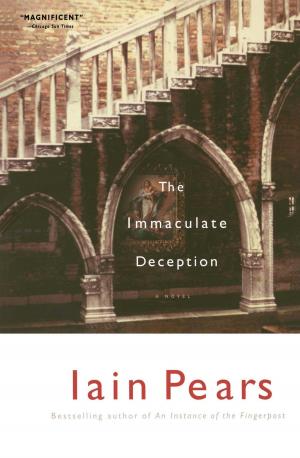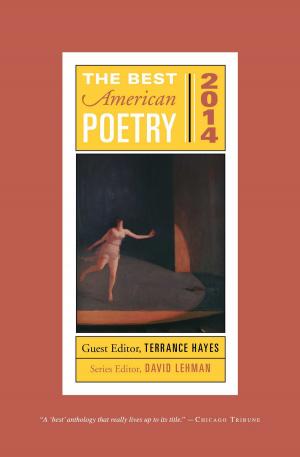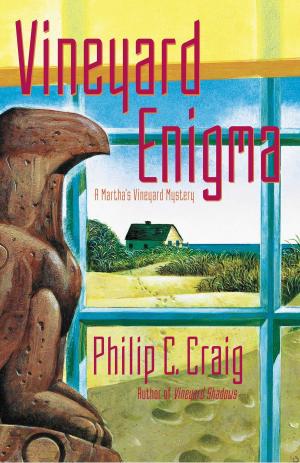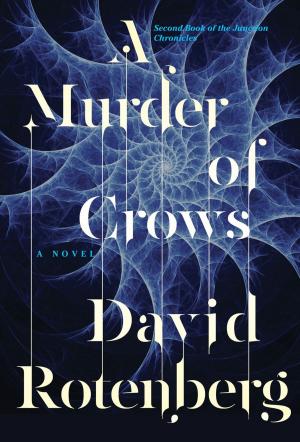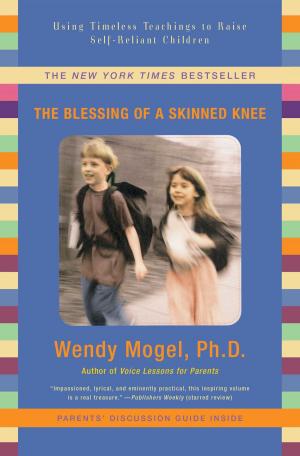| Author: | Joyce Weatherford | ISBN: | 9780743216715 |
| Publisher: | Scribner | Publication: | February 1, 2002 |
| Imprint: | Scribner | Language: | English |
| Author: | Joyce Weatherford |
| ISBN: | 9780743216715 |
| Publisher: | Scribner |
| Publication: | February 1, 2002 |
| Imprint: | Scribner |
| Language: | English |
In her remarkable debut, Joyce Weatherford writes with raw power, muscular beauty, and firsthand experience about life in the twentieth-century American West.
Bringing us to the golden plains of northeast Oregon, Joyce Weatherford presents the saga of the Steele family -- a family built not on love but on farming. Twenty-eight-year-old Iris Steele has inherited the 150-year-old family ranch and all the debt that goes with it -- a legacy, all in all, she is not certain she wants. It is the ranch where Iris has spent her life, where she grew up herding cattle and harvesting wheat, and where her brother and her father both died. It is also, it turns out, the land once owned by the Nez Perce Indian tribe, and suddenly the modern Nez Perce are suing to reclaim what they say is rightfully theirs.
To save the ranch, Iris must spend months untangling generations of family history to understand the land's legitimate ownership -- a process that unearths not only her family past but also the history of the American West and two hundred years of tortured relationships between homesteaders and Native Americans. Meanwhile, she is fighting to manage a new wheat crop, broken machinery, and her ever-fragile romance with her childhood friend, the local farmhand-turned-doctor. And as the truth of the land's ownership begins to emerge, so do surprising realities about the Steele family -- such as the startling stories behind the deaths of Iris's father and brother, and her aunt's institutionalization. In the end, Iris realizes she has inherited not just the land but its history as well, and that it's a history from which she must break free in order to discover love, forgiveness, and who she really is.
Joyce Weatherford demonstrates an astonishing control of language, combining unflinching descriptions of ranch life with the sensuous beauty of the Oregon landscape, communicating such vivid physical detail that we feel we are right alongside Iris in the corral, in the field, on her horse. She conveys perfectly the danger, the suspense, the awe and energy in those moments when man meets, battles, and harnesses nature: fighting wildfire; harvesting grain; chasing runaway horses; hunting coyotes from a beat-up propeller plane; herding, branding, birthing, and castrating cattle.
Heart of the Beast is a portrait of the relationship between the settlers of the Pacific Northwest and the region's indiginous people, of the demise of the family farm in the face of corporate agribusiness, and of the redemptive power of forgiveness. Part romance, mystery, courtroom drama, and American history, this is a family saga of epic power and importance.
In her remarkable debut, Joyce Weatherford writes with raw power, muscular beauty, and firsthand experience about life in the twentieth-century American West.
Bringing us to the golden plains of northeast Oregon, Joyce Weatherford presents the saga of the Steele family -- a family built not on love but on farming. Twenty-eight-year-old Iris Steele has inherited the 150-year-old family ranch and all the debt that goes with it -- a legacy, all in all, she is not certain she wants. It is the ranch where Iris has spent her life, where she grew up herding cattle and harvesting wheat, and where her brother and her father both died. It is also, it turns out, the land once owned by the Nez Perce Indian tribe, and suddenly the modern Nez Perce are suing to reclaim what they say is rightfully theirs.
To save the ranch, Iris must spend months untangling generations of family history to understand the land's legitimate ownership -- a process that unearths not only her family past but also the history of the American West and two hundred years of tortured relationships between homesteaders and Native Americans. Meanwhile, she is fighting to manage a new wheat crop, broken machinery, and her ever-fragile romance with her childhood friend, the local farmhand-turned-doctor. And as the truth of the land's ownership begins to emerge, so do surprising realities about the Steele family -- such as the startling stories behind the deaths of Iris's father and brother, and her aunt's institutionalization. In the end, Iris realizes she has inherited not just the land but its history as well, and that it's a history from which she must break free in order to discover love, forgiveness, and who she really is.
Joyce Weatherford demonstrates an astonishing control of language, combining unflinching descriptions of ranch life with the sensuous beauty of the Oregon landscape, communicating such vivid physical detail that we feel we are right alongside Iris in the corral, in the field, on her horse. She conveys perfectly the danger, the suspense, the awe and energy in those moments when man meets, battles, and harnesses nature: fighting wildfire; harvesting grain; chasing runaway horses; hunting coyotes from a beat-up propeller plane; herding, branding, birthing, and castrating cattle.
Heart of the Beast is a portrait of the relationship between the settlers of the Pacific Northwest and the region's indiginous people, of the demise of the family farm in the face of corporate agribusiness, and of the redemptive power of forgiveness. Part romance, mystery, courtroom drama, and American history, this is a family saga of epic power and importance.
